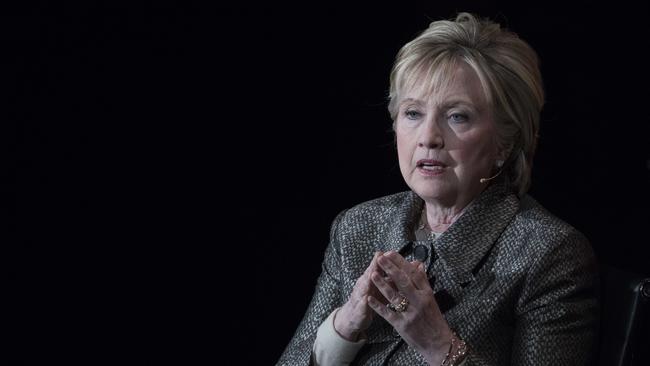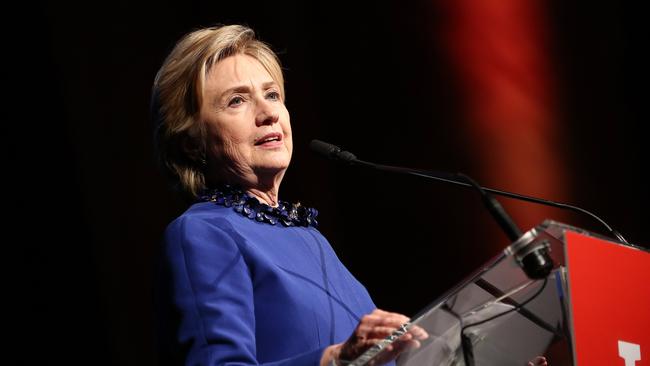No Hillary, you were NOT ‘on the way to winning’
THE US presidential election may have been 100-plus days ago but America’s biggest loser is still making excuses, writes James Morrow.

Rendezview
Don't miss out on the headlines from Rendezview. Followed categories will be added to My News.
IT was the Russians! It was James Comey! The wind was blowing! The sun was in my eyes!
The US presidential election may have been 100-plus days ago but America’s biggest loser is still making excuses.
“I was on the way to winning until a combination of Jim Comey’s letter on October 28 and Russian WikiLeaks raised doubts in the minds of people who were inclined to vote for me and got scared off,” Hillary Clinton said in a rare public appearance in New York this week.
Obviously her loss had nothing to do with barely campaigning in hollowed-out rust belt states, Obamacare health insurance premiums skyrocketing just before Election Day, or her treating the election like a coronation.
Oh, and there’s more.
In the same talk, Hillary Clinton, the ultimate establishment insider, also declared herself a part of the “resistance”. Bless.

By now, the broad outlines of what happened last November are well known. But a new book, Shattered, by Washington journalists Jonathan Allen and Amie Parnes, fills in the gaps as to how the woman everyone figured to put away Donald Trump in a landslide was sent packing by the electorate.
Contrary to her assertions that she was “on the way to winning”, defeat was pretty much baked in before the campaign began — even as far back as 2008 when, in an obsessive desire to figure out why she lost that nomination to Barack Obama, she started combing through staffers’ emails trying to discover who might have leaked information damaging to her.
That experience — and the paranoia it fed off — may have led Clinton to set up her own private email server when Secretary of State in contravention of the rules, but that was only the start.
Allen and Parnes paint a picture of a campaign riven by rivalries where few people had “access” and no one dared air their misgivings lest they be taken as disloyal and exiled from “Clintonworld”.
Instead, competing power centres were pitted against one another while Clinton campaign manager Robby Mook pushed a cynical, data-driven strategy that focused entirely on getting out the base rather than attempting to appeal to the so-called “deplorables” who left the Democrats in droves when they felt they were being ignored.
Add to that scaring off any potential Democratic challengers (we learn the Clintons assigned ratings of one to seven to Congressional Democrats so they would know who to reward and who to punish), and the inability to come to grips with Bernie Sanders and the anger with the system he capitalised on, and things become even clearer. Hacking was truly the least of Hillary’s problems.
By the end of this whirlwind of a book, readers are left not only not knowing why she wanted to win — her own team struggled to answer that question right up to Election Day — but with no sense the candidate understood why she lost.
Like the restored Bourbon kings of France, it appears that the Clintons have learnt nothing, and forgotten nothing.
And they didn’t even get to sit back on the throne.
James Morrow is the Daily Telegraph’s Opinion Editor



